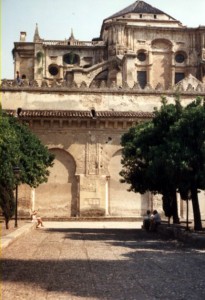A speech by the new President of Egypt, Abdel Fattah al-Sisi, is a huge break with the usual rhetoric coming from public figures in Islam.
The full speech is here, but the key phrases are:
Among other things, Sisi said that the “corpus of [Islamic] texts and ideas that we have sacralized over the years” are “antagonizing the entire world”; that it is not “possible that 1.6 billion people [reference to the world’s Muslims] should want to kill the rest of the world’s inhabitants—that is 7 billion—so that they themselves may live”; and that Egypt (or the Islamic world in its entirety) “is being torn, it is being destroyed, it is being lost—and it is being lost by our own hands.”
This is pretty strong stuff and might get him the fate of Anwar Sadat, at the hands of the Muslim Brotherhood. Making peace with Israel was a bridge too far for the Brotherhood.
The Brotherhood’s stated goal is to instill the Qur’an and Sunnah as the “sole reference point for … ordering the life of the Muslim family, individual, community … and state.” The movement officially renounced political violence in 1949, after a period of considerable political tension which ended in the assassination of Egyptian Prime Minister Mahmoud an-Nukrashi Pasha by a young veterinary student who was a member of the Muslim Brotherhood.
The renunciation obviously did not apply to Sadat who was assassinated in 1981.

